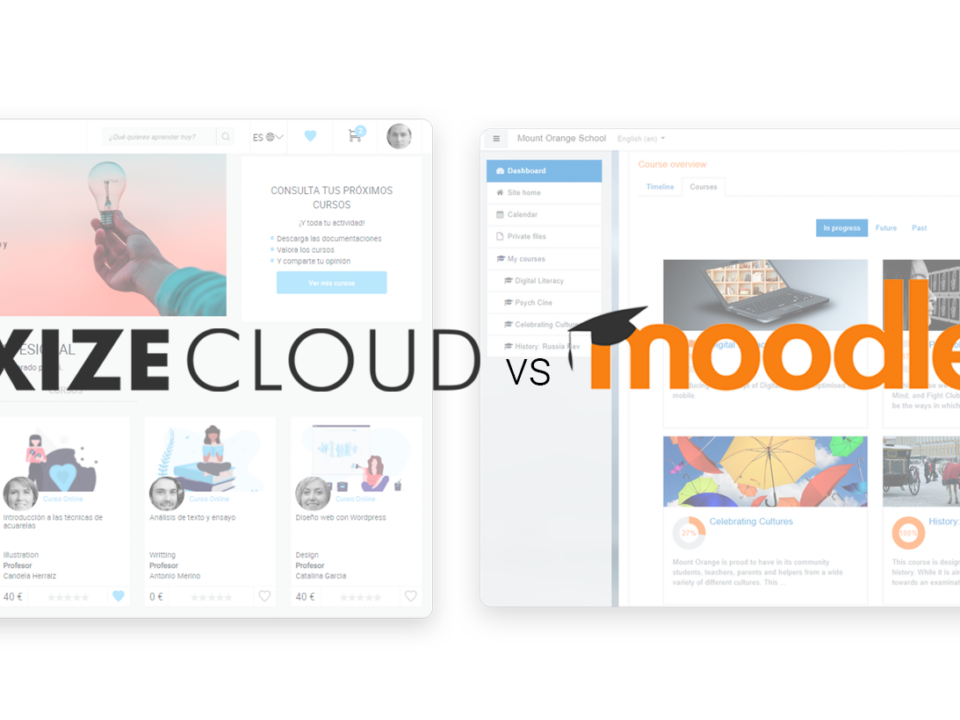COVID-19 has affected many sectors to a greater or lesser extent, and as a result, many of them have had to reinvent themselves to adapt to the circumstances of the new normality.
One of these sectors is education. Many schools and universities have had to close and finalize courses online, through webinars, and conferences through Zoom. At Foxize, for example, we had to suspend our face-to-face courses.
University education
Now that the new course begins, many institutions have considered what to do with their courses. In the United States, many universities such as Boston University or Cambridge are beginning to launch their degrees and masters completely online. Others such as Wellington University or Rutgers University propose a mixed or “blended” model, where face-to-face learning is combined with remote classes.
In Spain, according to the Ministry of Universities, all the necessary protocols for the beginning of the course are already being finalized, in which a mixed model will also be followed, a mix between face-to-face and remote activities.
But this shouldn't be news to us. Online learning has always been around the world before the pandemic. In Spain, there are half a dozen 100% online universities, such as the UOC or the International University of La Rioja, and the majority of public and private universities offer online degrees and postgraduate degrees. In fact, in 2019, 2.5 million Spaniards took some type of online course.
The business of e-learning
Training is not exclusively part of public educational institutions. The private e-learning sector has also been affected. According to Business Insider, throughout this summer several Spanish educational startups have closed new rounds of financing and, globally, investment in EdTech has reached 3.5 billion dollars between January and July 2020.
E-learning Guild, a large community of English-speaking training professionals, conducted a survey among its members to analyze how the coronavirus had affected their companies. The result was a clear change, 86% responded that they transformed their courses and training from the face-to-face format to the online format.
The European Data Portal highlights the importance of partnerships between public education and the private sector in the future, something that has already been developed in recent years, but that the pandemic will strengthen these ties (Zoom is a clear example of this cooperation between sectors for the sake of education.)
The e-learning business has grown around 8-10% in the last 10 years and, according to the CEO of AEFOL (organizers of Expoelearning), in 2020 the growth of this sector will grow close to 30%.
Training beyond universities
Many people who telecommute take advantage of the time they save from transportation to take online courses for their personal development, and large companies have decided to invest this period of less activity to train their employees, few are those who still do not. In LinkedIn's annual report on learning experiences at work, there is a clear trend for companies to migrate their face-to-face training to online, with 57% of those interviewed having dedicated a larger budget to this category.
The advantages of online training are many, both for trainers and students. Starting your own online school requires a low initial investment (such as that offered by the Foxize Cloud platform) and the return it generates, in the long run, can be very high.
In addition, online training allows, on the one hand, to offer asynchronous training through video capsules accessible whenever and wherever the student wants, allowing them to self-manage their own learning.
According to this World Economic Forum article, online learning requires 40-60% less time to learn than its face-to-face counterpart, since students can learn at their own pace, watch the videos as many times as necessary or progress in the concepts they already know, one of the many advantages of online training.
On the other hand, synchronous online training through webinars or webinars allows face-to-face sessions to be transferred to the Internet. One of its main advantages is the interactivity between teachers and students, and the possibility of answering questions about the syllabus and following up.
What is clear is that online training is making it possible to guarantee access to education for people in a continuous and more flexible way, thus improving the employability of people to face new challenges.


